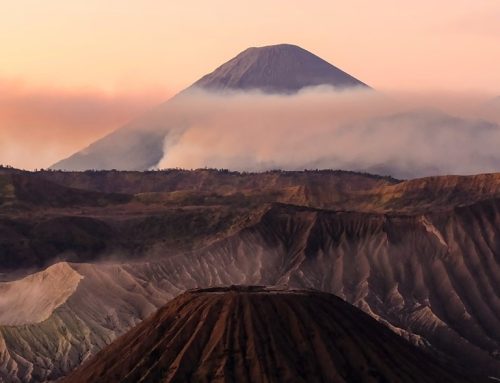The important role youth play in combating climate change and environmental degradation in Indonesia

Photo by Markus Spiske from Pexels
In total,109,500,000. One hundred and nine million, five hundred thousand. That is a current estimate on how many people under the age of 25 are currently living in Indonesia. That is around 41% of the total population, which causes the median age of an Indonesian person to be 28 years old 2. So, when Indonesia is described as a young nation, it is not only describing the recent independence but the demographic of its people. It is on these young minds that the challenges and trials of climate change might finally be mitigated. This article will look at the challenges faced, what young leaders are doing about it and what you could be doing to aid in the fight against climate change.
How is climate change going to impact Indonesia’s youth?
Although being the world’s third-largest democracy3, the youth of Indonesia are majorly underrepresented, with people under 40 only making up 18% of Indonesian parliamentarians1. Young people have a very small political representation, despite making up a large proportion of the population and being the most likely to face the consequences of political inaction towards climate change. A global UNICEF report found that young people living in Indonesia are at high risk of experiencing the impacts of climate change. These impacts include being highly exposed to coastal and riverine flooding, cyclones, vector-borne diseases, lead pollution, heatwaves, water scarcity and exceedingly high levels of air pollution5. Although climate change is a global problem, Indonesia is also a major contributor to the destabilisation of the earth’s atmosphere. In 2017, it was the 4th largest emitter of greenhouse gas emissions3. Only 15% of Indonesia’s rubbish is recycled with 1kg of plastic waste per year entering the environment and polluting oceans. It has never been more important to give young Indonesians more of a say in how Indonesia is combating climate change and protecting its environment. Being the most at risk of climate change impacts, they have more reason than any other generation to create effective and lasting change.
Young Indonesians who are creating a better future for Indonesia’s environment.
Countless young people are leading the way for youth to secure a safe future for Indonesia. Twenty-year-old Adeline Tiffanie Suwana is a young environmental activist, who after being directly impacted by flooding, has encouraged her peers to stand up and act. Starting from just 100 volunteers, Adeline now runs an organisation that works with over 25,000 youth who work together to organise environmental projects4, including replanting mangroves and creating a connection between young people and their environment.
Twenty-six-year-old Rahyang Rimba Prima Nusantara is an executive coordinator leading the movement towards reducing the use of plastic bags and twenty-three-year-old Vania Santoso initiated a youth-led organisation to raise awareness of environmental issues and waste management4. All three have taken up the initiative, responsibility, and pressure to begin to make big environmental changes from a very young age. They are shaping how the younger generations are viewing the environment and are not alone in their dedication to a better future for Indonesia. Thousands of young people are leading the way towards reducing Indonesia’s climate contribution without any background in environmental protection or political ties, they understand that the time to act is now and they need support from the rest of Indonesia’s diverse and unique community.
How you can reduce Indonesia’s environmental impact.
To make a change as a young person doesn’t require everyone to start an environmental organisation or head into a career in politics. Every day people can make big changes through small lifestyle ones. This includes actively reducing your fossil fuel consumption through using public transport, turning off lights and saving energy where possible. Consciously sorting your waste and supporting waste management initiatives. Avoid the use of plastics, such as bags, straws, and packaging. Planting trees, getting involved with local environmental groups, being educated on political parties’ environmental policies, and supporting everyone in your life to think green will have a huge impact. In the war on climate change, every little action counts, putting the foundations for an environmentally sustainable future requires everyone to change their habits now!

Photo by Artem Beliaikin from Pexels
The current prediction for Indonesia’s environmental future is bleak. Ravaged by an unpredictable and dangerous climate, diminishing food production and a growing population, the livelihood and wellbeing of Indonesian people could seriously decline. But the initiatives and actions being taken by young Indonesians today towards a healthier environment is a great step towards ensuring Indonesia’s prosperous future. There are thousands of strong hands to put Indonesia’s future in, so it’s time to take young people more seriously in the war on climate change. Give young Indonesians the platform and respect that they need, so that they can make a positive lasting difference in how the future will play out.
Alice V Bertram
The University of Melbourne
ACICIS Intern at the Environment Institute



